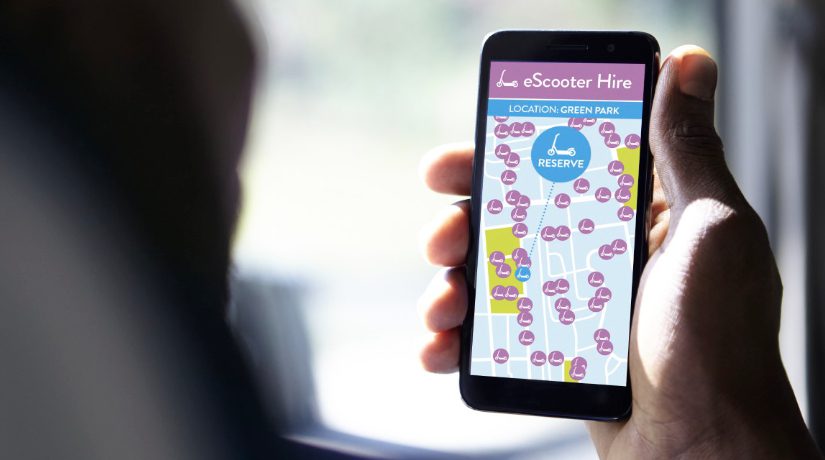As that wise old industry adage goes: “The Passenger Always Comes First”. It’s a commitment we strive to meet, both as suppliers and operators. But what’s the secret to success? Well, a key element in delivering the best passenger experience lies in operators going beyond in the services they provide. Armed with the right information at the right moments, kept entertained, and able to share relevant details regarding their trip, a passenger’s journey will meld effortlessly into the rest of their day.
As technological advances continue to be made, passenger-centric applications which help travellers stay connected and informed will therefore undoubtedly bring significant value.
Simplifying Trip Planning for All
It’s an undeniable fact that the world generally, and the public transport industry specifically, is becoming increasingly digital – And this brings many exciting possibilities. But it’s vital that digitalisation helps simplify journey planning for passengers, empowering them to plan their journeys independently, quickly and easily.
Having not been surrounded by digital technology since birth, those in older age demographics are less likely to be tech-savvy – it’s important that they are not left to drown in a sea of unnecessary apps, or forced to navigate multiple websites from disparate companies when organising a single trip.
Similarly, more digitally proficient travellers (e.g. younger passengers and business commuters), will turn away from using public transport if the industry’s associated technology does not keep pace with their exacting requirements. They won’t have the patience to put up with overly complex solutions, especially if simpler alternatives are available via other (e.g. private) modes of travel.
Thankfully, multiple options exist to meet these challenges: Powerful real-time information solutions mean that passengers can be seamlessly guided from door to destination with accurate, up-to-the-minute information on routes, services and prices…
- Pre-boarding – Passengers can be sent push notifications to their smart device confirming information on departure time and platform, as well as vehicle occupancy levels, for example. This helps minimise the time they need to spend in a public space waiting for a suitable service, and makes it easier to find a free seat in a quiet carriage once they board.
- On Board – While they travel, passengers can be given real-time access to information via their smart device or in-vehicle screens, providing them with live updates on their journey progress. The ability to alert travellers to any issues at the earliest possible moment gives them a degree of control and reassurance; though never good news, if passengers know when and why delays occur, they are far more likely to be understanding.
- Post-Trip – Passengers can be presented with multi-modal onward journey possibilities via their smart device. This creates a truly joined-up experience; able to view departures across various transport modes (rail, bus, tram, bike, e-scooter, taxi etc.), customers are empowered to rapidly and intuitively adapt as they proceed along each step of their journey.
Facilitating an Engaging Passenger Experience
The onboard experience continues to evolve in all kinds of exciting ways. Today, transport operators are also able to provide a range of enhanced passenger-centric solutions. Those travelling can order food and beverages from the comfort of their seat, while perks and rewards can serve as the icing on the cake when it comes to delivering a five-star service. For example, it’s possible to send selected customers messages offering them discounted drinks, complimentary snacks, or even the opportunity to watch a recently released movie for free.
When it comes to offering onboard entertainment, it’s important that the solution is stable wherever vehicles travel on their journey. In a project that highlights the importance of this requirement, Norwegian transport operator Vy recently upgraded the digital passenger experience for its customers travelling on the Bergen Line, a rail route which runs over the highlands between Oslo and Bergen; the line offers one of the most breath-taking travel experiences in Europe but also suffers from limited cellular coverage and capacity. Overcoming potential issues caused by this, the content behind GoMedia’s onboard entertainment solution for Vy is securely uploaded to Icomera’s hardware, meaning that it does not require an external Internet connection to be played; this allows Vy’s passengers to enjoy the onboard entertainment on offer even in the most remote rural areas that they pass through.
The Value of Passenger Feedback
Gathering passenger feedback is key to improving the passenger experience. Digital technology enables a two-way conversation between passengers and operators while the journey is in progress, providing a regular touchpoint that generates invaluable data for understanding the evolving landscape of passenger routines, sentiment, needs and expectations.
Those travelling on vehicles can provide feedback in a myriad of different ways. Simple multiple-choice questions allow passengers to quickly express their views using happy face / sad face emoticons, and surveys can be created to add additional layers of information, delivering further valuable insights.
Feedback can be tagged with the vehicle and service that a passenger is travelling on, enabling operators to build a clearer picture of which vehicles, routes, time periods and / or staff consistently encounter the same issues, so that services in need of a particular focus can be identified.
Additionally, passengers may be encouraged to give free text feedback, which can be analysed using a specialised AI-led system. In a significant development towards this capability, GoMedia has conducted live trials alongside Wordnerds and West Midlands 5G. By combining GoMedia’s contextual passenger feedback technology with Wordnerds’ AI-led sentiment analysis tools, a new onboard and cloud-based solution gave West Midlands Metro unprecedented access to measurable and actionable live passenger feedback.
The speed at which the data is processed is dramatically increased when using the 5G network. It also allows for the use of different types of passenger-generated data. For example, passengers connected to Icomera’s centralised onboard connectivity network can send videos and images of any issues to the operator using the onboard Wi-Fi, without incurring any data costs themselves. 91% of test responses that should have triggered an alert were correctly identified by the Wordnerds platform, and the average time between response submission and alert receipt was just 2 minutes.
This article features in Icomera’s 48-page industry report “The Connected Journey Through Transport’s Transformative Decade”.
Supported by data and insights gathered from transport authorities, operators, and technology companies around the world, the report covers the trends and challenges shaping the future of passenger transport, and the role that connectivity will play in achieving the industry’s overarching goals…


